- Home
- Catherine Coulter
Double Take
Double Take Read online
Table of Contents
Title Page
Copyright Page
Dedication
CHAPTER 1
CHAPTER 2
CHAPTER 3
CHAPTER 4
CHAPTER 5
CHAPTER 6
CHAPTER 7
CHAPTER 8
CHAPTER 9
CHAPTER 10
CHAPTER 11
CHAPTER 12
CHAPTER 13
CHAPTER 14
CHAPTER 15
CHAPTER 16
CHAPTER 17
CHAPTER 18
CHAPTER 19
CHAPTER 20
CHAPTER 21
CHAPTER 22
CHAPTER 23
CHAPTER 24
CHAPTER 25
CHAPTER 26
CHAPTER 27
CHAPTER 28
CHAPTER 29
CHAPTER 30
CHAPTER 31
CHAPTER 32
CHAPTER 33
CHAPTER 34
CHAPTER 35
CHAPTER 36
CHAPTER 37
CHAPTER 38
CHAPTER 39
CHAPTER 40
CHAPTER 41
CHAPTER 42
CHAPTER 43
CHAPTER 44
CHAPTER 45
CHAPTER 46
CHAPTER 47
CHAPTER 48
CHAPTER 49
CHAPTER 50
CHAPTER 51
CHAPTER 52
CHAPTER 53
CHAPTER 54
CHAPTER 55
CHAPTER 56
CHAPTER 57
CHAPTER 58
CHAPTER 59
CHAPTER 60
EPILOGUE
Also by Catherine Coulter
THE FBI THRILLERS
Point Blank (2005)
Blowout ( 2004 )
Blindside (2003)
Eleventh Hour (2002)
Hemlock Bay (2001)
Riptide (2000)
The Edge (1999)
The Target (1998)
The Maze (1997)
The Cove (1996)
G. P. PUTNAM’S SONS
Publishers Since 1838
Published by the Penguin Group
Penguin Group (USA) Inc., 375 Hudson Street, New York, New York 10014, USA • Penguin
Group (Canada), 90 Eglinton Avenue East, Suite 700, Toronto, Ontario M4P 2Y3, Canada
(a division of Pearson Penguin Canada Inc.) • Penguin Books Ltd, 80 Strand, London
WC2R 0RL, England • Penguin Ireland, 25 St Stephen’s Green, Dublin 2, Ireland (a division
of Penguin Books Ltd) • Penguin Group (Australia), 250 Camberwell Road, Camberwell,
Victoria 3124, Australia (a division of Pearson Australia Group Pty Ltd) • Penguin Books
India Pvt Ltd, 11 Community Centre, Panchsheel Park, New Delhi-110 017, India • Penguin
Group (NZ), 67 Apollo Drive, Rosedale, North Shore 0745, Auckland, New Zealand (a
division of Pearson New Zealand Ltd) • Penguin Books (South Africa) (Pty) Ltd, 24 Sturdee
Avenue, Rosebank, Johannesburg 2196, South Africa
Penguin Books Ltd, Registered Offices:
80 Strand, London WC2R 0RL, England
Copyright © 2007 by Catherine Coulter
All rights reserved. No part of this book may be reproduced, scanned, or distributed
in any printed or electronic form without permission. Please do not participate
in or encourage piracy of copyrighted materials in violation of the author’s rights.
Purchase only authorized editions.
Published simultaneously in Canada
Library of Congress Cataloging-in-Publication Data
Coulter, Catherine.
Double take / Catherine Coulter.
p. cm.
eISBN : 978-0-515-14469-7
1. United States. Federal Bureau of Investigation—Fiction. 2. San Francisco (Calif.)—
Fiction. 3. Savich, Dillon (Fictitious character)—Fiction. 4. Sherlock, Lacey (Fictitious
character)—Fiction. 5. Government investigators—Fiction. I. Title.
PS3553.O843D
813’.54—dc22
This is a work of fiction. Names, characters, places, and incidents either are the product of the author’s imagination or are used fictitiously, and any resemblance to actual persons, living or dead, businesses, companies, events, or locales is entirely coincidental.
While the author has made every effort to provide accurate telephone numbers and Internet addresses at the time of publication, neither the publisher nor the author assumes any responsibility for errors, or for changes that occur after publication. Further, the publisher does not have any control over and does not assume any responsibility for author or third-party websites or their content.
http://us.penguingroup.com
TO MY BEAUTIFUL SISTER, DIANE ,
AND HER NEW HUSBAND, LARRY HORTON.
I WISH YOU BOTH OVERFLOWING HAPPINESS.
~ CATHERINE
CHAPTER 1
SAN FRANCISCO
Thursday night
Julia was whistling. She was happy, she realized, actually happy, for the first time in what seemed like forever. The cops had finally given up, the media had gone on to new, more titillating stories to keep their ratings up. And the soulless paparazzi who lurked behind bushes, cars, and trees, one of them even crouched down behind a garbage can, trying to catch her—what?—meeting a lover so they could make a buck selling a photo to the National Enquirer? Or maybe writing a murder confession on a tree trunk? They’d moved on after six endless months, focusing their stalking cameras back on movie stars and entertainers who were a lot more interesting than she was. Fact was, it was her husband, Dr. August Ransom, who’d been the magnet for the media, not she. She’d been only a temporary diversion, just the black widow who’d probably gotten away with murdering a very famous man and medium, a man who spoke to dead people.
Free, at last I’m free.
She didn’t know how far she’d walked from her home in Pacific Heights, but now she found herself strolling down Pier 39 on the bay, that purest of tourist attractions, with its shops and clever white-faced mimes and resident seals, all just spitting distance from Fisherman’s Wharf. She’d stopped at the to-die-for fudge store, and now stood by the railing at the western side of Pier 39, chewing slowly on her precious piece of walnut fudge, watching the dozens of obese seals stretched out on flat wooden barges beside the pier. She heard the sounds of people talking around her, laughing, joking around, arguing, parents threatening or bribing their kids, all of it sounding so normal—it felt wonderful. In April, in San Francisco, it wasn’t the April showers that brought the May flowers, it was the lovely webby fog that rolled through the Golden Gate Bridge. The amazing thing was the air even had a special April fog smell—fresh and new and tangy, a bit damp, with a bit of a bite.
She wandered to the end of the pier and looked across the water toward Alcatraz, which was not that far away, really, but the swim could kill you, either the vicious currents or the icy water.
She turned and leaned her elbows on the railing, watching the people hungrily. There weren’t that many who wandered down to the very end of the pier. She watched the lights begin to come on. It was cooling down fast, but she didn’t feel cold in her funky leather jacket. She’d found the jacket at a garage sale in Boston when she was in college, and it was still her favorite. August had looked both sour and amused when she’d worn that jacket. Because she didn’t want to hurt his feelings, she never told him that wearing the jacket made her feel like the young Julia again—buoyant, in both her heart and spirit. But August wasn’t here now, and she felt so lighthearted and young
in that moment, it was as if she’d float right off the thick wooden planks.
She was unaware of just how much time passed, but suddenly there was more silence than sound around her, and all the lights were on. The few tourists who hadn’t returned to their hotels for the night had entered one of the half-dozen nearby restaurants for dinner. She looked down at her watch—nearly seven-thirty. She remembered she had a dinner date at eight at the Fountain Club with Wallace Tammerlane, a name she knew he’d made up when he’d decided to go into the psychic business thirty years before. He’d been a longtime friend of August’s, had told her countless times since her husband’s death that August had been welcomed into The Bliss, that August actually didn’t know who’d murdered him, nor did he particularly care. He was now happy, and he would always look out for her.
Julia had accepted his words. After all, Wallace was August’s friend, as legitimate as her husband. But she knew August had scoffed at many of those so-called psychic mediums, shaken his head in disgust at their antics, even as he praised their showmanship. What did she believe? Like many people, Julia wanted to believe there were certain special people who could speak to the dead. She believed to her soul that August was one of them, but there were very few like him. She’d seen and met so many of the fakes during her years with August. Even though she’d said nothing, it seemed to her that, according to them, any loved ones who died, no matter the circumstances of their passing, were always blissfully happy in the afterlife, always content and at peace, even reunited with their long-dead pets. But she couldn’t help but wonder if August really was happy in The Bliss, wonder if he didn’t want the person who’d murdered him to pay. Who wouldn’t? She did. She’d asked his friends and colleagues in the psychic medium world if they could discover who had killed him, but evidently none of them was possessed of that special gift. This lack of vision was unfortunate, especially for Julia, since the police had fastened their eyes on her and looked nowhere else, at least as far as she could tell.
She didn’t know if August had been blessed with that particular gift. TV shows had psychics who could picture murderers, even feel them, see how they killed and who they killed, and who could help track them down. And there were even mediums who, in addition to being psychic, could also speak with the dead. Were any of these people for real? She didn’t know.
Who killed you, August, who? And why? That was still the question always in her mind—why?
There was August’s lawyer, Zion Leftwitz, who’d called her after her husband’s death. August’s estate, he’d said on her machine, it was very important, as were her responsibilities to that estate, an estate, she knew now, that wasn’t all that substantial.
Obligations, she thought, always there, at least eighty percent of life.
She really didn’t want to have dinner with Wallace, didn’t want to hear his comforting words, hear yet again that August was at peace. Then she’d inevitably hear about Wallace’s latest triumph, perhaps how he’d contacted the mayor’s long-dead grandfather. She knew all the way to her boot heels he’d seriously dent her euphoria. And it also meant taking a taxi back home. She had to leave this magic place, she had to hurry.
“Excuse me, ma’am. That’s Alcatraz out there, isn’t it?”
She turned to see a tall black man, firm-jawed, wearing glasses, a long belted coat, standing close, smiling down at her.
She smiled up at him. “Yes, it is.”
“I’m going to visit tomorrow. But tonight—do you know when the next ferry leaves for Sausalito?”
“No, but it’s never long between runs. The schedule is on the side of the building over there, not five minutes from Pier 39—” As she turned slightly to point, he smashed his fist into her jaw. The force of the blow knocked her back against the wooden railing. She saw a bright burst of lights before her eyes, then she saw the flash of something silver in his hand, something sharp—dear God, a knife. Why? But words froze in her throat in a thick veil of terror. All her focus was on that silver knifepoint.
She heard a man shout, then heard, “FBI! Stop now, back away from her, or I’ll shoot!”
The man with the knife froze an instant, then cursed. He hefted her up and threw her over the railing into the bay. She splashed into the icy water and rolled over the mess of black rocks that stabbed her like stiletto blades. She tried to struggle, but knew in a flicker of consciousness that she wasn’t going to escape this, that she was going to fall and fall—was that a seal honking? Was that someone shouting? It didn’t matter because everything was going black as her body settled into the jumbled rocks at the bottom of the bay, the water smoothing over her. Her last thought, really more an echo, was that she wouldn’t ever get to be happy again.
CHAPTER 2
The weight on her chest was rhythmic and hard, yet somehow separate from her body. Then someone’s mouth was against hers, and a huge burst of hot air blasted down her throat, deep, filling her. It felt odd, but then it simply didn’t matter. She drifted away.
A man’s hard-edged voice shouted in her face—“Don’t you let go! Do you hear me? You come back here. Now! I had trouble enough getting you out of the damned bay, not a ladder in sight. Lucky we didn’t both drown, so don’t you dare let go on me!”
She felt a slap, two, on her cheeks, sharp, stinging, then more hard pressing against her chest, and that brought her closer. The pressure came inside her, hard and harder still, and she felt each and every sharp blow all the way to her backbone.
“Come on back now! Dammit, breathe!”
His mouth was on hers again and his breath was hot again, blessed heat that burrowed deep inside her. She was so cold, freezing, but that hot breath was like a bellows pumping through her. Suddenly, she wanted that heat. She sucked it in madly.
The man’s voice, his breath hot on her cheek now, said over and over, “That’s it, that’s right, come on now, you can do it. Don’t give up.”
“More,” she whispered, not knowing if she’d even spoken aloud. He flipped her onto her stomach and began pounding her back with his fists. When water spewed out of her mouth, he quickly pulled her onto her side. She heaved and gasped, so cold she wanted to scream, but he slapped her back hard again with the heel of his hand and more water gushed out, then slowed to a dribble, snaking down her chin.
She wheezed and shuddered and said, her voice hoarse, “The seals aren’t honking anymore.”
The sharp slaps against her back stopped. The man said, “Yeah, they’ve closed down for the day. Hang on now.” He rubbed her back rhythmically, and she coughed again, hoarse and loud, and more water dribbled out of her mouth. Where was all that water coming from?
When he couldn’t get another drop of water out of her, the man pulled her up to a sitting position and forced her head between her knees. She breathed hard, couldn’t seem to stop shuddering.
“Good, that’s it, keep sucking in air.” He yanked off her wet leather jacket and pulled his heavy sports coat around her.
She hiccupped. “My jacket, my poor jacket. I’ve had it since I was a sophomore at Boston College.”
“It’s so tatty it’ll have to survive. What’s a little water? Hey, I came out of the Crab House and saw that guy clip you on the jaw—and I saw the knife. When I yelled at him, he knew time had run out and he threw you over the railing. He knew I couldn’t chase him then, knew I was going right for you, had to get you out of the water. I couldn’t even shoot at him—there wasn’t time.”
“Shoot him? What on earth do you mean?”
Another man’s voice came out of the darkness. “Hey, Cheney, can’t I leave you alone for a single minute? Where’s June? I thought she only came out for a cigarette. I thought you came out to fetch her. What’s going on here? Who is this?”
The man sprinted over, squatted beside the two of them, and stared down at her, his expression appalled. “What happened here? Did she try to commit suicide?”
He’d asked the man who’d rescued her, the one called Cheney
, but she was alive, thank you very much, and so she answered, “No, a man punched me, but he ran out of time before he could finish me off, so he threw me over the railing. It happened so fast I didn’t have time to react at all. He—Cheney—stopped him. He saved me.” She paused, giving him a crooked grin. “That’s a strange name but I’m used to strange names. Mine’s not strange, it’s sort of boring, really.”
“What is your name?”
“I’m Julia.”
Cheney smiled, kept rubbing her back. “It’s not all that boring.”
The other man stared at her like she was nuts, but she really didn’t care. She felt wonderfully tired and slumped back against Cheney’s hands. “My jaw feels like someone exploded a bomb inside my face.”
“Yeah, I’ll bet,” Cheney said. “No, no, don’t you let go now. Straighten up, you can do it.” Cheney lifted her back to a sitting position, pounded her back a couple more times. Thank the good Lord there was nothing left to come up. “That’s it, no more water in you. Now get yourself together, Julia. You’re going to be all right.” He grabbed her arms and shook her. “Time to get a grip here. Come on now!”
She opened her eyes and yelled, “Stop it, you baboon! My head’s going to break off my neck.”
He stopped shaking her. “Okay, but don’t try to fade out again or I’ll whack you some more.”
She heard a woman’s voice. “Cheney? Manny? What’s going on here? I finished my cigarette, but neither of you were at the table when I went back inside. Linda said Manny had come to look for you, Cheney. Come on back inside, they just brought our dinner. Hey, what’s this?”
Cheney slowly got to his feet, pulling Julia up with him, anchoring her against his side so she wouldn’t fall on her face. No, that wasn’t going to work. He picked her up in his arms. “Sorry, June. I guess you could say I’m back on duty. You and Manny go back on in and enjoy the cioppino, it’s supposed to be the Crab House specialty, the best in San Francisco. This is work, so I’ve got to attend to it. I’ll call you later.”
“I’m not work. I’m Julia.”
“Yeah, I know.”

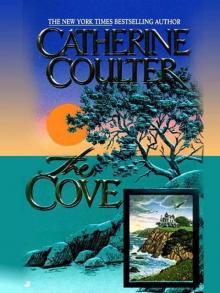 The Cove
The Cove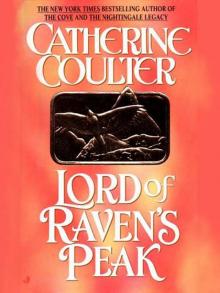 Lord of Raven's Peak
Lord of Raven's Peak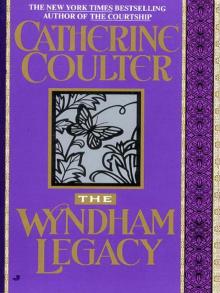 The Wyndham Legacy
The Wyndham Legacy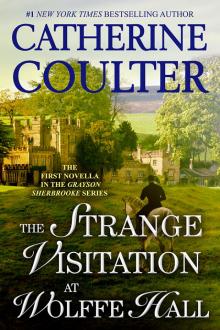 The Strange Visitation at Wolffe Hall
The Strange Visitation at Wolffe Hall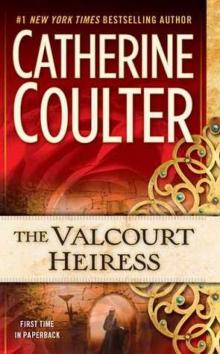 The Valcourt Heiress
The Valcourt Heiress Bombshell
Bombshell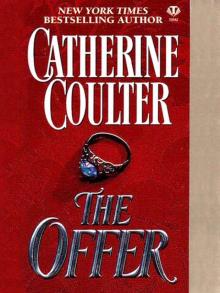 The Offer
The Offer The Edge
The Edge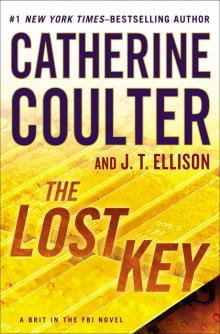 The Lost Key
The Lost Key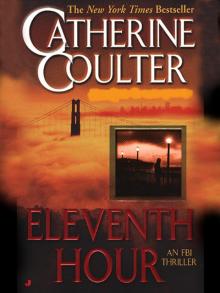 Eleventh Hour
Eleventh Hour Blindside
Blindside Devil's Daughter
Devil's Daughter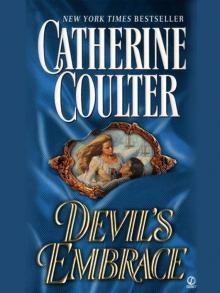 Devil's Embrace
Devil's Embrace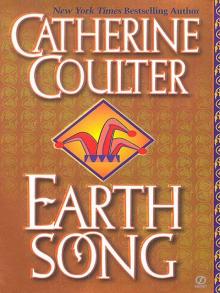 Earth Song
Earth Song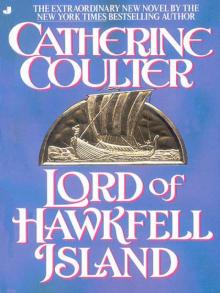 Lord of Hawkfell Island
Lord of Hawkfell Island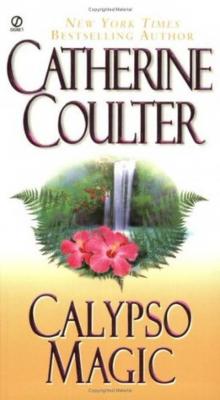 Calypso Magic
Calypso Magic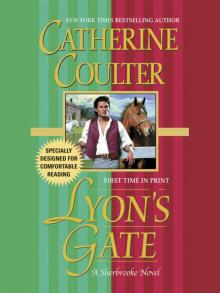 Lyon's Gate
Lyon's Gate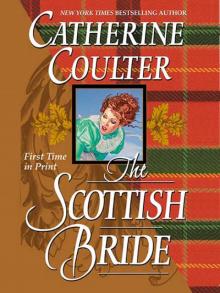 The Scottish Bride
The Scottish Bride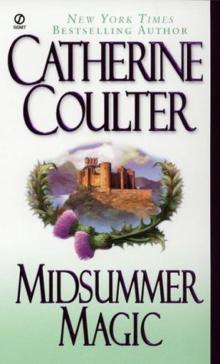 Midsummer Magic
Midsummer Magic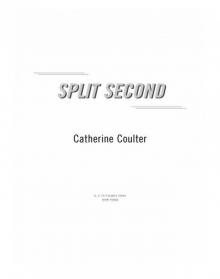 Split Second
Split Second Enigma
Enigma Blowout
Blowout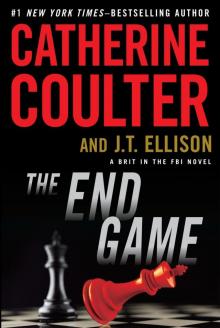 The End Game
The End Game Double Take
Double Take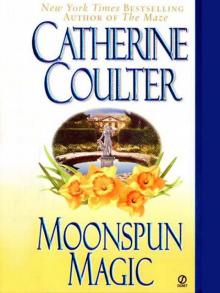 Moonspun Magic
Moonspun Magic The Courtship
The Courtship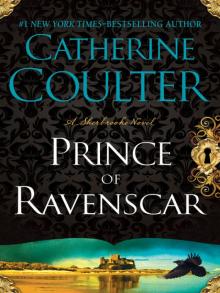 Prince of Ravenscar
Prince of Ravenscar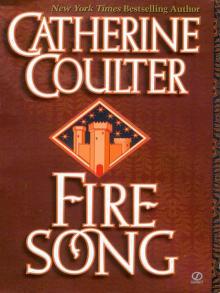 Fire Song
Fire Song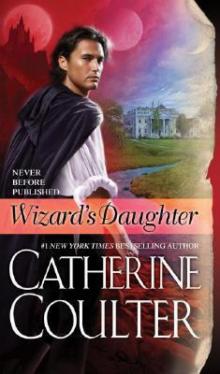 Wizard's Daughter
Wizard's Daughter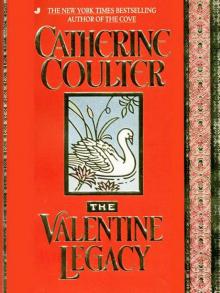 The Valentine Legacy
The Valentine Legacy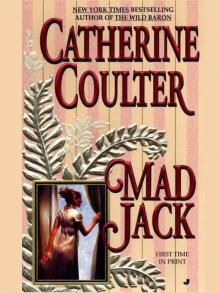 Mad Jack
Mad Jack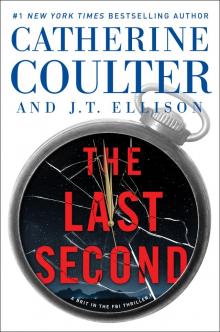 The Last Second
The Last Second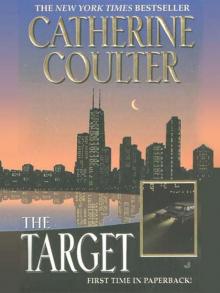 The Target
The Target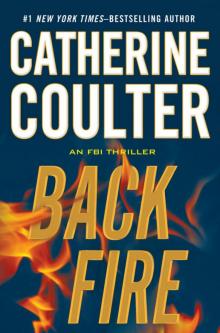 Backfire
Backfire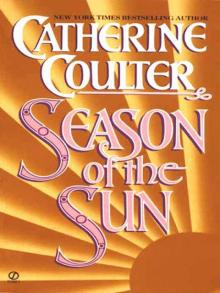 Season of the Sun
Season of the Sun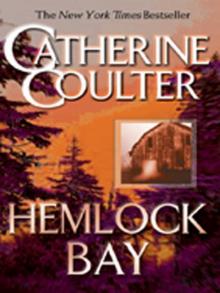 Hemlock Bay
Hemlock Bay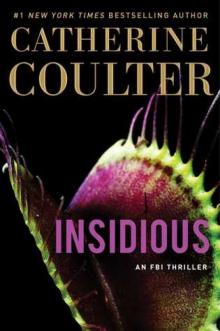 Insidious
Insidious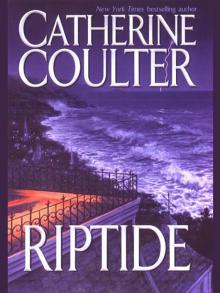 Riptide
Riptide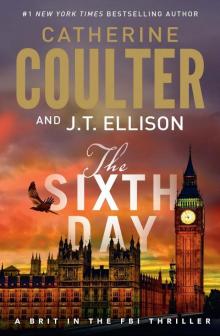 The Sixth Day
The Sixth Day Secret Song
Secret Song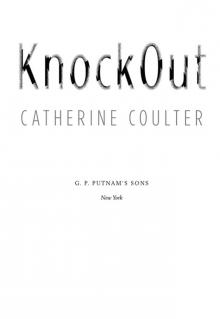 KnockOut
KnockOut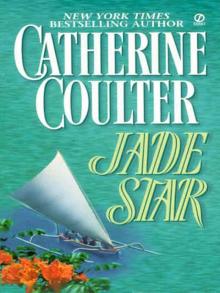 Jade Star
Jade Star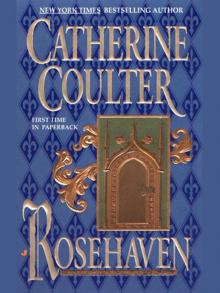 Rosehaven
Rosehaven The Hellion Bride
The Hellion Bride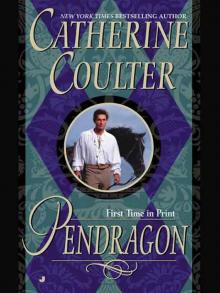 Pendragon
Pendragon Vortex
Vortex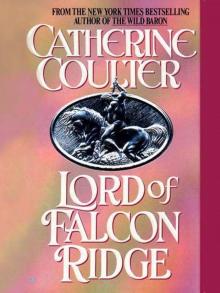 Lord of Falcon Ridge
Lord of Falcon Ridge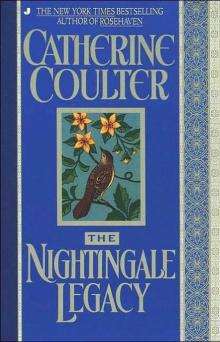 The Nightingale Legacy
The Nightingale Legacy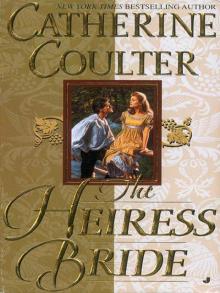 The Heiress Bride
The Heiress Bride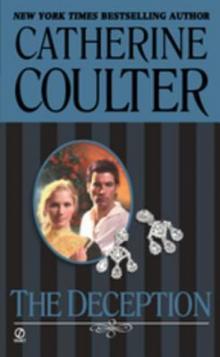 The Deception
The Deception The Maze
The Maze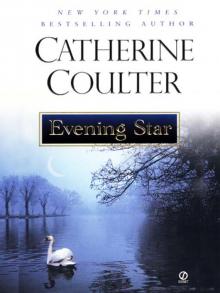 Evening Star
Evening Star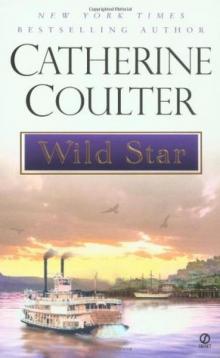 Wild Star
Wild Star The Final Cut
The Final Cut Paradox
Paradox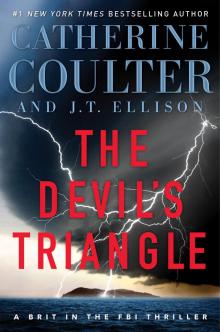 The Devil's Triangle
The Devil's Triangle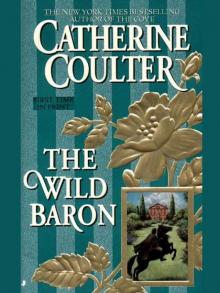 The Wild Baron
The Wild Baron Point Blank
Point Blank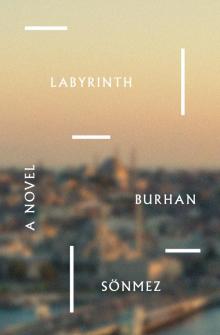 Labyrinth
Labyrinth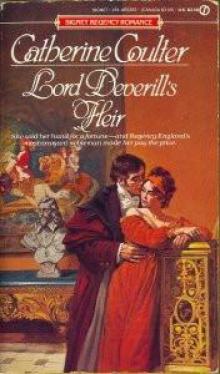 Lord Deverill's Heir
Lord Deverill's Heir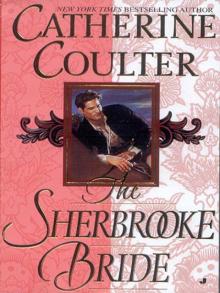 The Sherbrooke Bride
The Sherbrooke Bride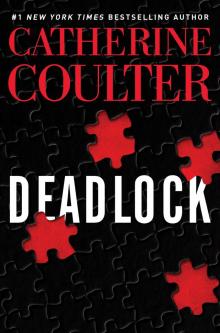 Deadlock
Deadlock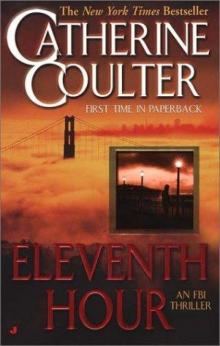 Eleventh Hour f-7
Eleventh Hour f-7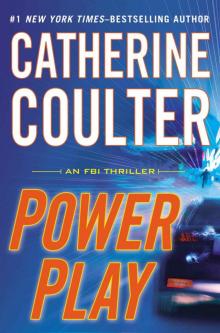 Power Play (An FBI Thriller)
Power Play (An FBI Thriller)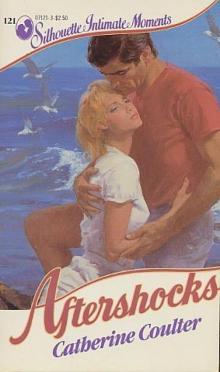 Aftershocks
Aftershocks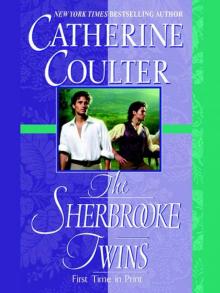 Sherbrooke Twins tb-8
Sherbrooke Twins tb-8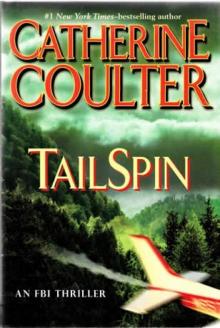 Tail Spin ft-12
Tail Spin ft-12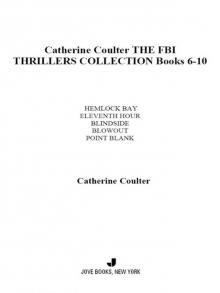 The FBI Thrillers Collection
The FBI Thrillers Collection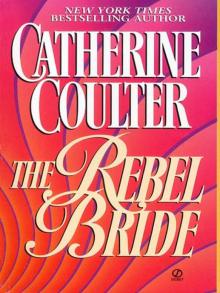 The Rebel Bride
The Rebel Bride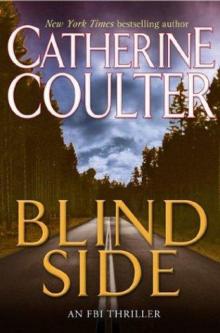 Blindside f-8
Blindside f-8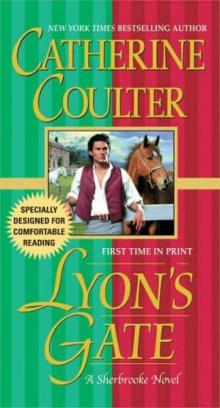 Lyons Gate tb-9
Lyons Gate tb-9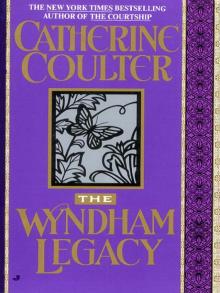 Wyndham Legacy
Wyndham Legacy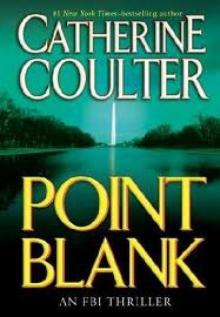 Point Blank f-10
Point Blank f-10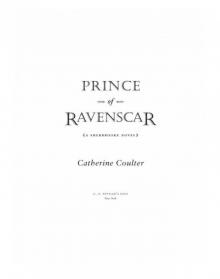 The Prince of Ravenscar
The Prince of Ravenscar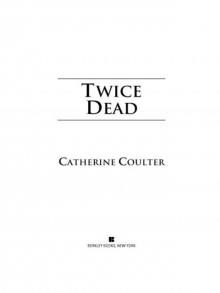 Twice Dead
Twice Dead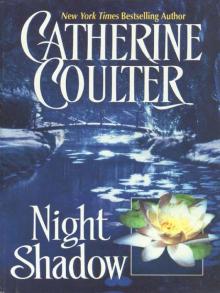 Night Shadow
Night Shadow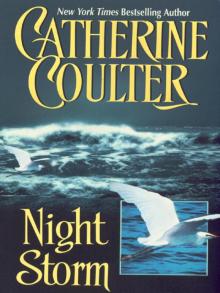 Night Storm
Night Storm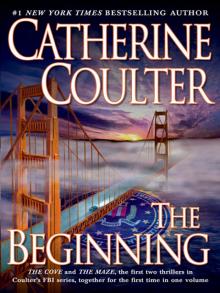 The Beginning
The Beginning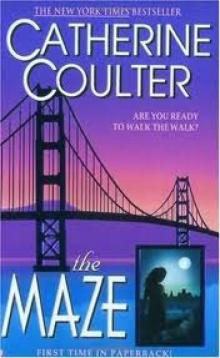 The Maze ft-2
The Maze ft-2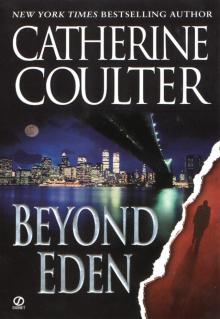 Beyond Eden
Beyond Eden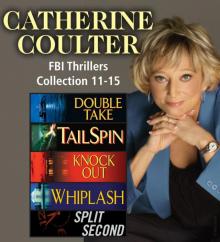 The FBI Thrillers Collection: Vol 11-15
The FBI Thrillers Collection: Vol 11-15 FALSE PRETENSES
FALSE PRETENSES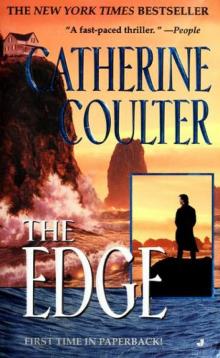 The Edge f-4
The Edge f-4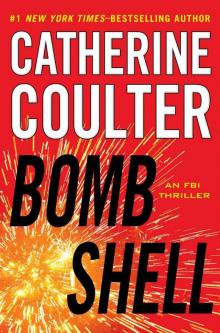 Bombshell (AN FBI THRILLER)
Bombshell (AN FBI THRILLER)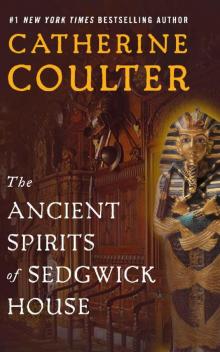 The Ancient Spirits of Sedgwick House (Grayson Sherbrooke's Otherworldly Adventures Book 3)
The Ancient Spirits of Sedgwick House (Grayson Sherbrooke's Otherworldly Adventures Book 3)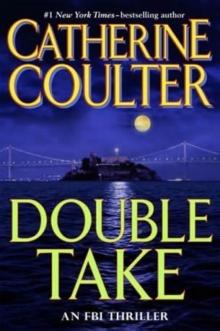 Double Take ft-11
Double Take ft-11 The Heir
The Heir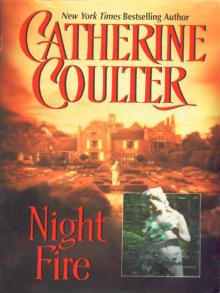 Night Fire
Night Fire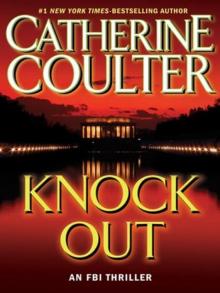 KnockOut ft-13
KnockOut ft-13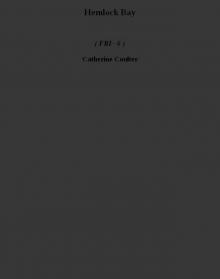 Hemlock Bay f-6
Hemlock Bay f-6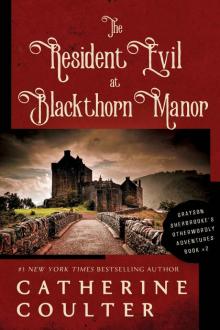 The Resident Evil at Blackthorn Manor (Kindle Single) (Grayson Sherbrooke's Otherworldly Adventures Book 2)
The Resident Evil at Blackthorn Manor (Kindle Single) (Grayson Sherbrooke's Otherworldly Adventures Book 2)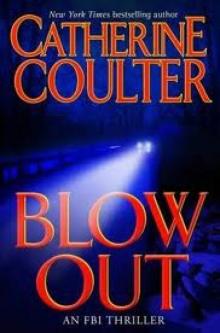 Blowout ft-9
Blowout ft-9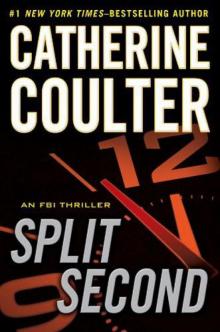 Split Second f-15
Split Second f-15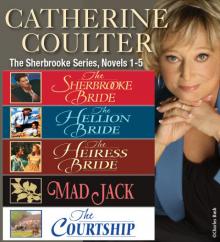 The Sherbrooke Series Novels 1-5
The Sherbrooke Series Novels 1-5 Impulse
Impulse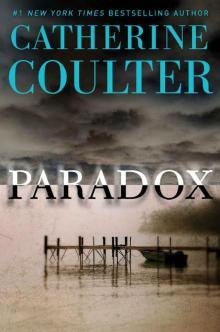 Paradox (An FBI Thriller Book 22)
Paradox (An FBI Thriller Book 22)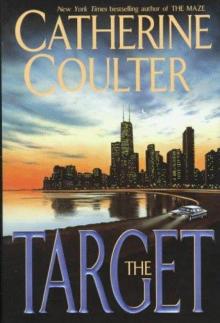 The Target f-3
The Target f-3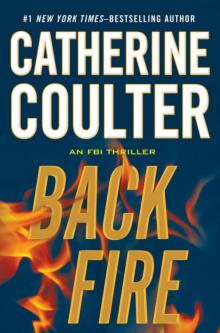 Backfire fst-16
Backfire fst-16 Born To Be Wild
Born To Be Wild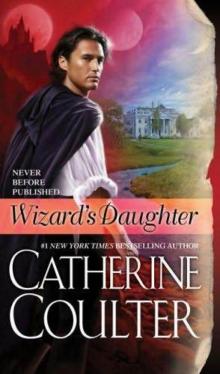 Wizards Daughter tb-10
Wizards Daughter tb-10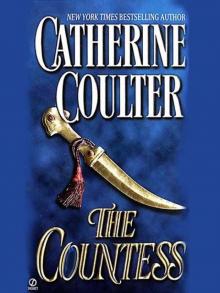 The Countess
The Countess